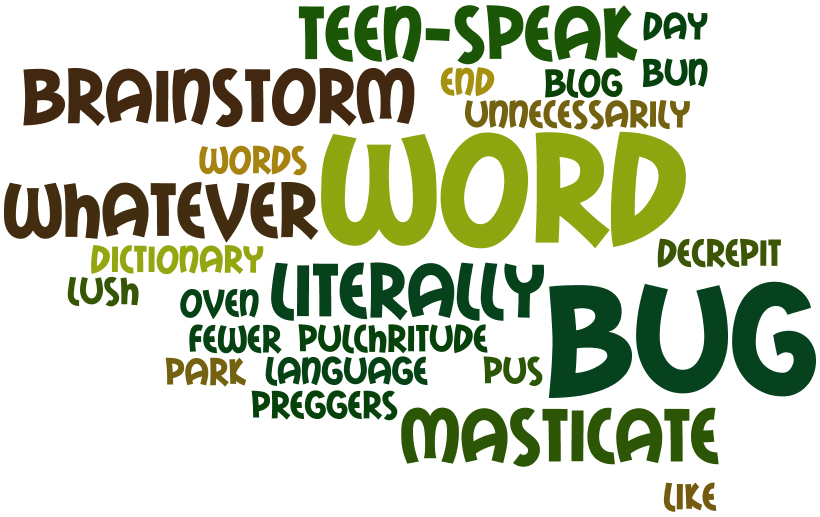
But there are words that irritate me too. ‘Lush’, for example. The only thing I feel should be described as ‘lush’ is grass or some kind of vegetation and I object to it being used as a generic adjective for everything from George Clooney to chocolate cake.
Perhaps this is less about the word itself and more to do with its use (or misuse), but it did start me thinking about personal bug-bears and annoyances when it comes to language and words.
In the nature of controlled scientific research, I Googled ‘most hated words’ and was surprised at the number of polls that have been taken on this and the range of people who have responded.
‘Literally’ was deemed to be the most irritating word by Daily Telegraph readers and this was in response to a poll run by researchers at Oxford University where ‘At the end of the day’ came in as hot favourite, closely followed by ‘fairly unique’.
YouGov ran a poll among the internet community and surprisingly ‘blog’ came in third? Perhaps that was before we all started doing it. Babycenter.com contributors objected to ‘preggers‘. Even ‘bun in the oven’ was preferable to this.
‘Pulchritude’ was a new word for me but, according to a Guardian poll, it causes even poets to wince. Not its use or meaning – indeed, Oxford Advanced Learner’s Dictionary 8th edition informed me it means beautiful – but rather its sound. Its consonants make it sound harsh and anything but beautiful, so I will add this to my list along with ‘masticate’, ‘pus’ and ‘decrepit’.
Asking around colleagues it seems ‘business-speak’ particularly irritates. Is it because in an industry where you strive to explain what you mean, it’s all about not saying what you mean? “Let’s ‘park that’ for now – we’ll ‘brainstorm’ it in our our next meeting” Pardon?
In the same vein ‘teen-speak’ which includes conversations punctuated with ‘like’ or ‘whatever’ (accompanied by a suitably dismissive gesture) seem also to irritate and enrage.
One student blog I recently read included ‘unnecessarily‘ on the list of words they dislike because it’s so difficult to spell. This is in the language they’re learning but they’ve probably also got a Word Bug in their own language. Could be a good topic for classroom discussion.
Here’s what some of my colleagues at Oxford University Press had to say about their Word Bugs:
So let’s face it, everyone has one. At the end of the day, what’s your Word Bug?
Emma Belcher
Assistant Product Manager, Reference
Oxford University Press